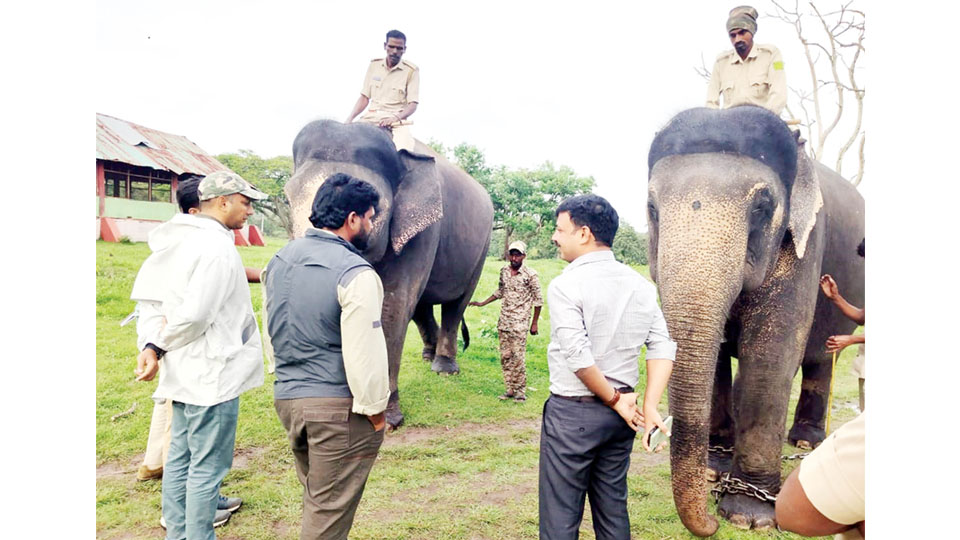By Author
After past controversies, this year’s selection process introduces new scientific safeguards
By M.T. Yogesh Kumar
Mysore/Mysuru: To uphold the grandeur and safety of the iconic Dasara procession in Mysuru, the Forest Department has intensified its preparations, especially in the meticulous selection of elephants that will march through the city during the Jumboo Savari.
This year marks a significant shift in protocol, as the Department, for the first time, has introduced faecal pregnancy testing for female elephants shortlisted for the festivities.
Response to past missteps
The selection of female elephants has grown increasingly complex in recent years. A turning point came in 2022 when Lakshmi, a female elephant brought to Mysuru for Dasara, gave birth to a male calf within the Palace premises. A decade earlier, another elephant, Vijaya, was quietly withdrawn after being discovered to be pregnant.
These incidents sparked protests from animal welfare organisations, who accused the Forest Department of negligence and endangering the welfare of both mother and calf.
In response, the Department began supplementing the traditional expertise of mahouts with scientific testing, but this year, they’ve taken it a step further.
Science meets tradition
While veteran mahouts are often able to identify pregnancies through abdominal palpation, the method is not foolproof. In at least two recent instances, elephants that were believed to be fit for the procession were later found to be pregnant.
To prevent such lapses, the Forest Department now conducts urine and blood tests for all female elephants selected for the grand show. But this year’s new addition — the faecal pregnancy test — is considered a more advanced and reliable method.
How the faecal test works
Dung samples are collected from shortlisted elephants, dried, powdered and sent to a specialised lab. The test detects pregnancy hormones and if markers are above 1 percent, the elephant is confirmed pregnant. A 0 percent marker indicates the elephant is not pregnant and therefore eligible to participate. Results from the current batch of tests are expected within two weeks.
Five female elephants have been shortlisted for the 2025 Dasara celebrations. They are Hemavathi from Dubare Camp, Roopa from Bheemanakatte Camp, Lakshmi (Doddaharave) from Balle Camp and Hiranya from Bandipur Old Campus.
Notably, Lakshmi, the elephant who previously gave birth in the Palace grounds, is among those being tested this year. Dung samples from all five have already been dispatched to laboratories for analysis.
Panasoli Camp under radar
In another first, Forest Department officials will visit the Panasoli Elephant Camp in Dandeli, Uttara Kannada, to examine two more female elephants — Chamundeshwari and another unnamed elephant — for potential inclusion in the Dasara contingent.
This expanded screening reflects the Department’s commitment to ensuring that no pregnant elephants are inadvertently included in the process.
“This year, in addition to blood and urine tests, we’ve added faecal pregnancy testing to the screening process,” said Dr. I.B. Prabhugowda, Deputy Conservator of Forests (DCF), Mysuru Wildlife Division. “It’s a scientifically validated method and once we receive the reports, we will finalise the list of participating elephants,” he added.
